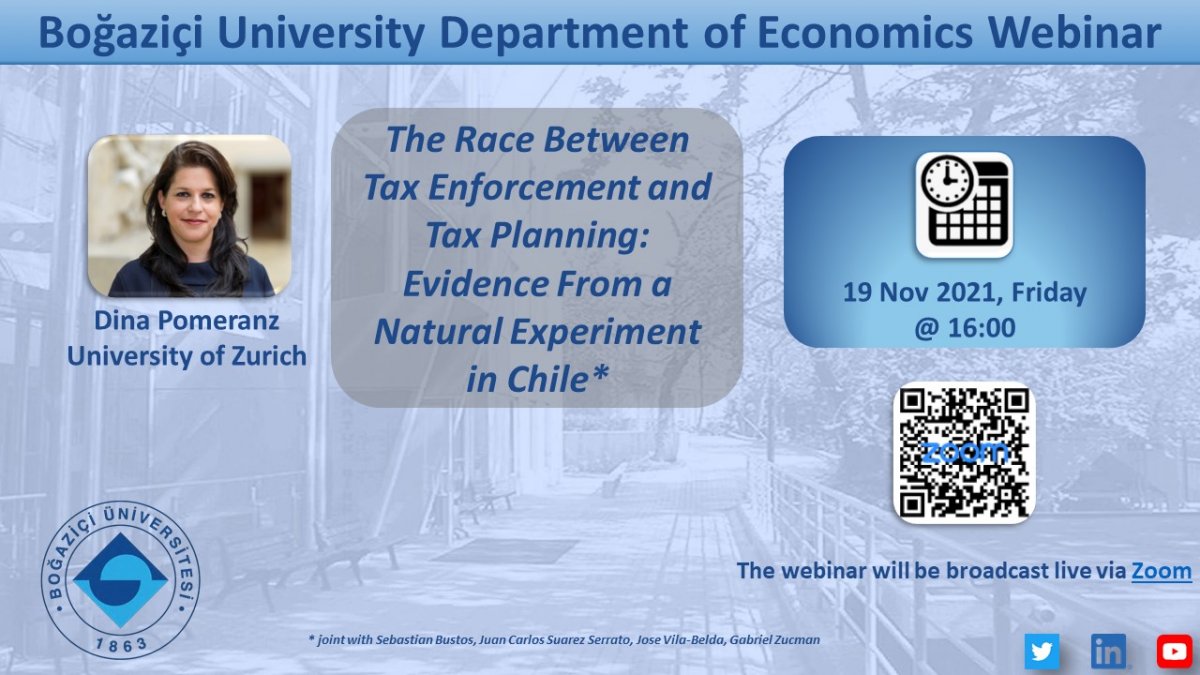The Race Between Tax Enforcement and Tax Planning: Evidence From a Natural Experiment in Chile

Dina Pomeranz (University of Zurich)
joint with Sebastian Bustos, Juan Carlos Suarez Serrato, Jose Vila-Belda, Gabriel Zucman
Abstract: Cross-border tax avoidance by multinational companies is a growing policy concern that has motivated reforms to increase tax monitoring. We study the effects of such a reform by combining evidence from micro-level administrative tax and customs data with in-depth interviews with tax advisors. Using a difference-in-differences event study design, we estimate the impacts of the reform on taxes paid, on intra-group flows of royalties, interests, services, and on goods prices. The reform did not significantly raise tax payments and did not reduce multinationals' propensity to make payments to lower-tax countries. At the same time, our interviews document that it led to a strong increase in tax advisory services, with the employment of transfer pricing experts at the leading consulting firms growing more than tenfold. Confirming a mechanism for increased tax planning identified by our interviews, we find that multinationals concentrate their cost centers in fewer countries following the reform. These findings illustrate that when enforcement can be circumvented, tax monitoring reforms can benefit the tax consulting industry at the expense of both tax authorities and taxpayers.
Click to Zoom link.

